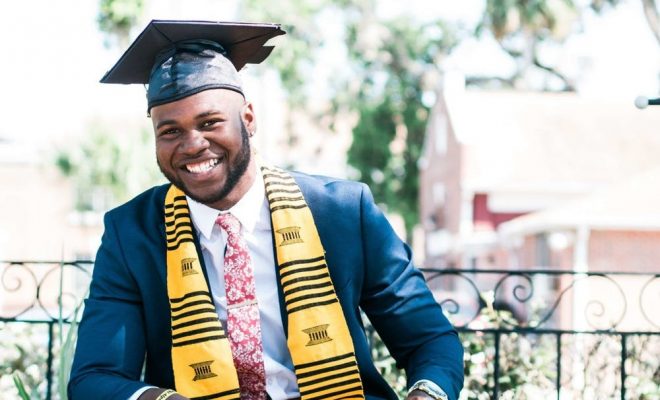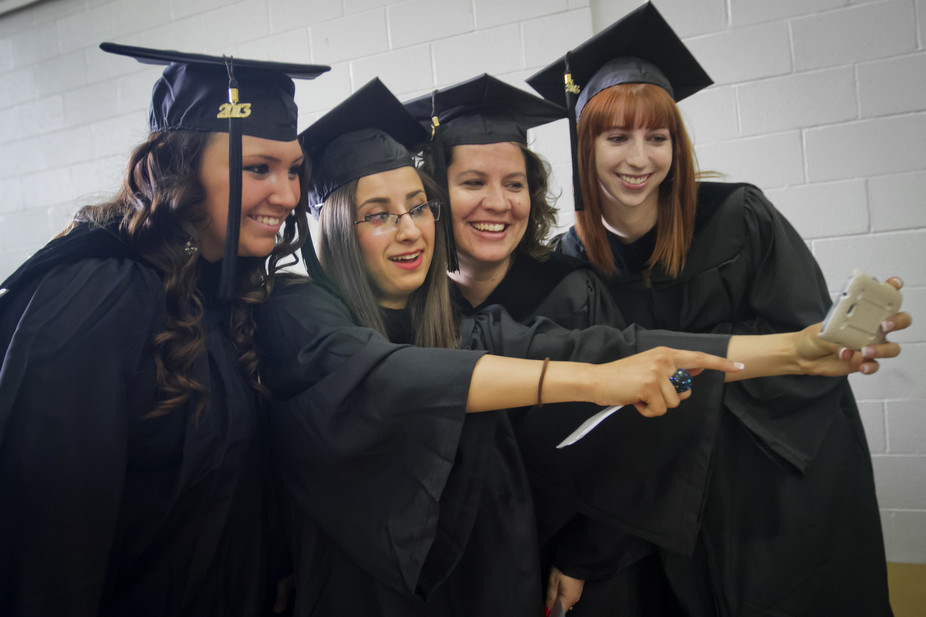2023 Best Bachelor’s Degree Programs in Electrical Engineering

Click here to find out more about the ranking methodology that we used to compile this list.
Congratulations! If you represent a college or university that is included in this list, please collect your seal below.
Deciding which college to attend can be a daunting task. For many, it will be the most important decision that they make in their lives. To make an informed decision, you have to consider a lot of variables, such as cost of attendance, financial aid, student-teacher ratio, academics, student life, and more. These factors will either positively or negatively impact the quality of education that you receive.
Do you want to acquire a bachelor’s degree in electrical engineering but don’t know what institution you should attend? Well, if you are as ambitious as I was in my late teens, then you want to attend a top school, instead of an average or mediocre one. Fortunately, we have already done the legwork for you. To help you find the right school for your interests and goals, we’ve compiled a list of 2022’s best bachelor’s in electrical engineering programs.
What institution did we omit from this list? Leave your suggestions in the comment section below.
- Stanford University, Stanford, CA
Stanford continuously is rated among the top five national institutions. Stanford has a bachelor of science (BS) with a major in electrical engineering that will prepare you to contribute to the field immediately. Stanford Engineering learners are ready to take on careers in an array of sectors—be it corporate, government, or further academic study. This is a broad, adaptable major with lots of room for learner choice. Learners select one of three disciplinary areas to focus on: hardware and software systems, information systems and science, or physical technology and science.
Stanford’s electrical engineering major is a 180-credit degree program, largely divided between classes in math, science, technology in society, and engineering topics. There are also elective classes that allow learners to delve into concepts of their interest. And each summer, learners have the chance to participate in the Research Experience for Undergraduates (REU) degree program, which enables them to work directly with faculty and other learners on an in-depth research project.
- MIT, Cambridge, MA
The Massachusetts Institute of Technology (MIT) is a prominent private research institution with a world-class commitment to problem-solving in math, science, and engineering. MIT’s Electrical Engineering and Computer Science program is the largest bachelor’s degree program at MIT and is renowned for its rigor and innovation. The degree program has a curriculum that is both adaptable and intensive. Learners experience laboratory subjects, teamwork, independent projects, and research that will equip them with the principles and methods of analysis, design, and experimentation in an array of EECS areas. The two undergraduate electrical engineering programs are (1) electrical science and engineering and (2) electrical engineering and computer science.
- Harvard University, Cambridge, MA
Studying electrical engineering at Harvard will show learners a range of research areas from devices to systems. Harvard’s degree program emphasizes both breadth and depth in the sub-subjects of EE. All learners specialize in electronic circuits and devices and have the chance to investigate multiple additional areas, including signals and systems theory, control systems, and robotics.
At the undergraduate level, Harvard has both a bachelor of arts (BA) and a bachelor of science (BS) in electrical engineering. Learners in both programs take many of the same upper-level EE classes, but those in the BA degree program (or AB in Harvard parlance) have more flexibility to pursue studies in other subjects. The BS degree program has a broader foundation in engineering fundamentals, but less flexibility.
- Georgia Tech, Atlanta, GA
Ranking among the top 35 national institutions in the country, Georgia Institute of Technology is a technology-focused public research institution. Tech’s School of Electrical and Computer Engineering refers to its learners and faculty as “the tinkerers, creators, and magic makers that make it happen.” Georgia Tech welcomes learners that want to partake of its their rigorous and pioneering bachelor of science (BS) in electrical engineering degree program. The degree program aims to produce learners who can dream, design, and finish complex projects. Research opportunities consist of these programs: Opportunity Research Scholars Program, The Vertically Integrated Projects Program, and ECE’s Undergraduate Research Opportunities Program (UROP).
Georgia Tech’s bachelor of science (BS) in electrical engineering has plenty of opportunities for learners to engage in pioneering projects. The year-long senior design project gives all learners the chance to develop technology across subjects.
- Cornell University, Ithaca, NY
Cornell is rated among the best national institutions in the country, with world-class faculty in over 100 fields of study. Cornell’s electrical engineering department has a bachelor of science (BS) in electrical engineering. The degree program trains learners to break problems down into solvable sub-problems methodologically and efficiently. Cornell’s EE degree program has three technical foundations:
- Physics: Circuits, Semiconductor Devices, and Optical Systems
- Computers: Microprocessors and Computing Devices
- Math: Information, Networks, and Systems
Cornell’s EE degree program gives learners plenty of room to delve deeply into research projects. More than half of the faculty continuously consists of undergraduates in their research groups. Many of these learners co-author papers and attend international technical conferences where they can meet leaders in the field.
- Cal Tech, Pasadena, CA
California Institute of Technology is a private research institution that sits among the top ten national institutions in the US. Not surprisingly, Caltech (which is a member of the prominent Association of American Universities) is also home to one of the highest rated Engineering Schools in the country; Cal Tech’s generous financial aid ensures that the school remains accessible to all learners.
Caltech’s Department of Electrical Engineering has a bachelor of science (BS) degree program that prepares learners for leadership in an array of sectors—from higher education to the private sector and government. All learners build on a rigorous and broad core curriculum that exposes them to the fundamentals of EE. Caltech’s degree program has a balance of classroom lectures and laboratory and design experience. Classes include electromagnetic engineering; signals, systems, and transforms; and analog electronics project lab.
Caltech’s BS in electrical engineering degree program allows learners to benefit from state-of-the-art experimental laboratory facilities, housed mainly in the Moore Laboratory of Engineering. Learners also have an opportunity to take a broader course of studies with the engineering and applied science option.
- Colorado School of Mines, Golden, CO
With an electrical engineering degree program that is rated among the best in the country, Colorado School of Mines is a nationally rated public research institution. The Department of Electrical Engineering has a bachelor of science (BS) in electrical engineering that prepares learners to solve real-world challenges connected to the earth, energy, information, and the environment. Students learn in an environment rich with opportunities for research and professional development. In addition to high-caliber faculty, EE learners have access to cutting-edge technology and advanced laboratories—including a learner-run lab (the Outlet). Classes include introduction to feedback control systems, information systems science, and electronic devices and circuits.
The school’s BS in electrical engineering has research and instructional programs that are enhanced by strong ties to research institutes. Learners have plenty of opportunities to collaborate with their peers on engineering projects, both academic and extracurricular, outside of the traditional classroom.
- University of Illinois, Urbana-Champaign, IL
The University of Illinois is a large public research institution that is rated among the top 50 national institutions in the country. Its Department of Electrical and Computer Engineering has a bachelor of science (BS) in electrical engineering, which will prepare learners with a multidisciplinary foundation in EE principles. All learners begin with a set of core classes and progress to a holistic array of specialized classes and laboratories. An essential part of the EE degree program is the Senior Design Project Lab, which gives learners hands-on experience in the field. Classes include analog signal processing, fields and waves, and digital systems laboratory. The Department of Electrical Engineering also has a dual BS/MEng degree for learners who wish to earn both degrees while on campus.
- Duke University, Durham, NC
Duke University is now a private research institution consistently rated among the best institutions nationally and internationally; Duke is a center for advancing pioneering research and teaching methods. As Duke graduates with a bachelor of science (BS) in electrical and computer engineering degree, learners will be prepared for a career as an electrical or computer engineer. Learners select from five areas of concentration, all of which consist of high-level computer languages: computer engineering and digital systems; signal processing, communications, and control systems; solid-state devices and integrated circuits; electromagnetic fields; and photonics.
- Columbia University, New York, NY
Columbia University is a private ivy league research institution that sits in the upper echelon of national institutions. Among Columbia’s top-rated graduate schools, Columbia Engineering is a revered institution, offering some of the top electrical engineering programs in the country.
Columbia’s bachelor of science (BS) in electrical engineering offers a holistic background in electrical engineering while providing elective coursework that delves into concepts that lie within learners’ area of interest. The degree program prepares learners for work in engineering as well as careers in related mathematically intensive fields and for further professional or graduate education. Classes include signals and systems, electromagnetics, and digital systems.
- Princeton University, Princeton, NJ
Princeton University is a private ivy-league research institution. Its School of Engineering has a bachelor of science (BS) in electrical engineering that couples rigorous training in engineering fundamentals and applications. Classes include statistical signal processing, solar energy conversion, and optical electronics.
Princeton’s BS in electrical engineering degree program balances traditional coursework with independent study. Learners begin with a set of unifying foundation classes that they build upon with two core classes, followed by a set of department electives in a concentration area of the learner’s choice. Learners also partake in at least one semester of independent research—and many learners do additional independent research beyond this minimum requirement.
- University of California-Berkeley, Berkeley, CA
One of ten research institutions in the University of California System, UC Berkeley, is a highly rated public institution. UC Berkeley is home to 14 colleges, including a renowned School of Engineering, which has top-rated programs that attract stellar learners and professors from around the world.
UC Berkeley has a bachelor of science program (BS) in electrical engineering and computer sciences (EECS). Learners obtain a rigorous, relevant, and broad education that takes full advantage of the school’s proximity to high-tech companies in the area. This is a dynamic degree program that challenges conventional thinking and places value on creativity and imagination. Classes consist of designing information devices and systems, introduction to digital electronics, and electronics for the Internet of Things. UC Berkeley’s EECS degree program is adaptable and emphasizes fundamentals. Learners utilize up-to-date undergraduate computer and laboratory facilities.
- Yale University, New Haven, CT
Yale’s Department of Electrical Engineering has a bachelor of science (BS) and a bachelor of arts (BA) in engineering sciences (electrical) that trains learners to have technical depth as well as a balanced and well-rounded education. This interdisciplinary degree program offers a broad engineering education in more than one technical field—and in a liberal art setting. Learners select from three tracks of specialty: microelectronics and photonics track, computer engineering track, or signal processing, control, and communications track.
Yale’s BS in electrical engineering curriculum prepares learners for entry into an engineering career or graduate study. The BA degree program offers a substantial advantage in fields such as medicine, and public service in which an understanding of STEM is an advantage. Both programs accentuate basic theory as well as real-world experience and entrepreneurship.
- Northwestern University, Evanston, IL
Northwestern University is a top-rated, private research institution. The Department of Electrical Engineering and Computer Science has a bachelor of science (BS) in electrical engineering, which starts learners in the fundamentals and applications of electrical engineering. The degree program enables sufficient flexibility for learners to pursue their interests and has internationally renowned faculty and state-of-the-art research equipment. Learners can specialize in several tracks, including biomedical systems, circuits and electronics, and communications systems.
One of the best features of Northwestern’s BS in electrical engineering is the small class sizes and close interactions between learners and faculty—a rarity in undergraduate electrical engineering programs. Recent graduates of the degree program work for companies such as AT&T, SpaceX, Northrop Grumman, Goldman Sachs, Boeing, and others. Graduates of the degree program are also accepted into graduate programs at some of the most prominent institutions in the world, including MIT.
- Rice University, Houston, TX
Not everything is bigger in Texas. Rice University is a small, highly rated private research institution. Rice is rated among the very best schools nationally for undergraduate teaching and is home to a top-rated School of Engineering. Rice University has both a bachelor of arts (BA) and a bachelor of science (BS) in electrical engineering. Both programs accentuate foundational principles that respond to and design technological alter. And research efforts involve learners from all levels in developing a foundational comprehension of scientific, mathematical, and engineering principles. Learners in the BS degree program select from one of five concentration areas: computer engineering; data science; neuroengineering; photonics, electronics, and nano-devices; and systems: communication, control, networks, and signal processing.







